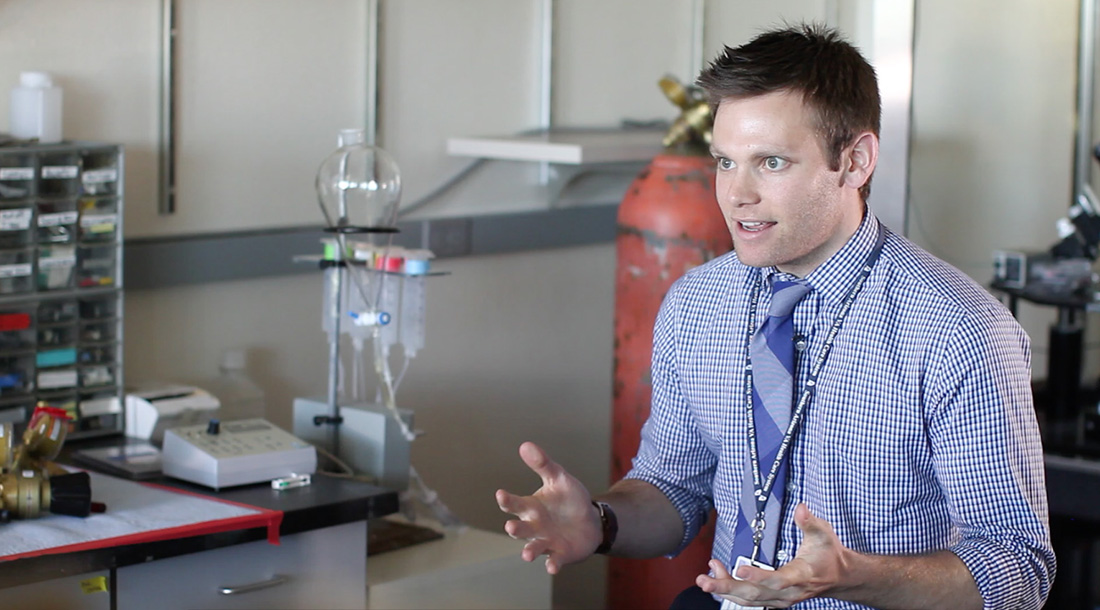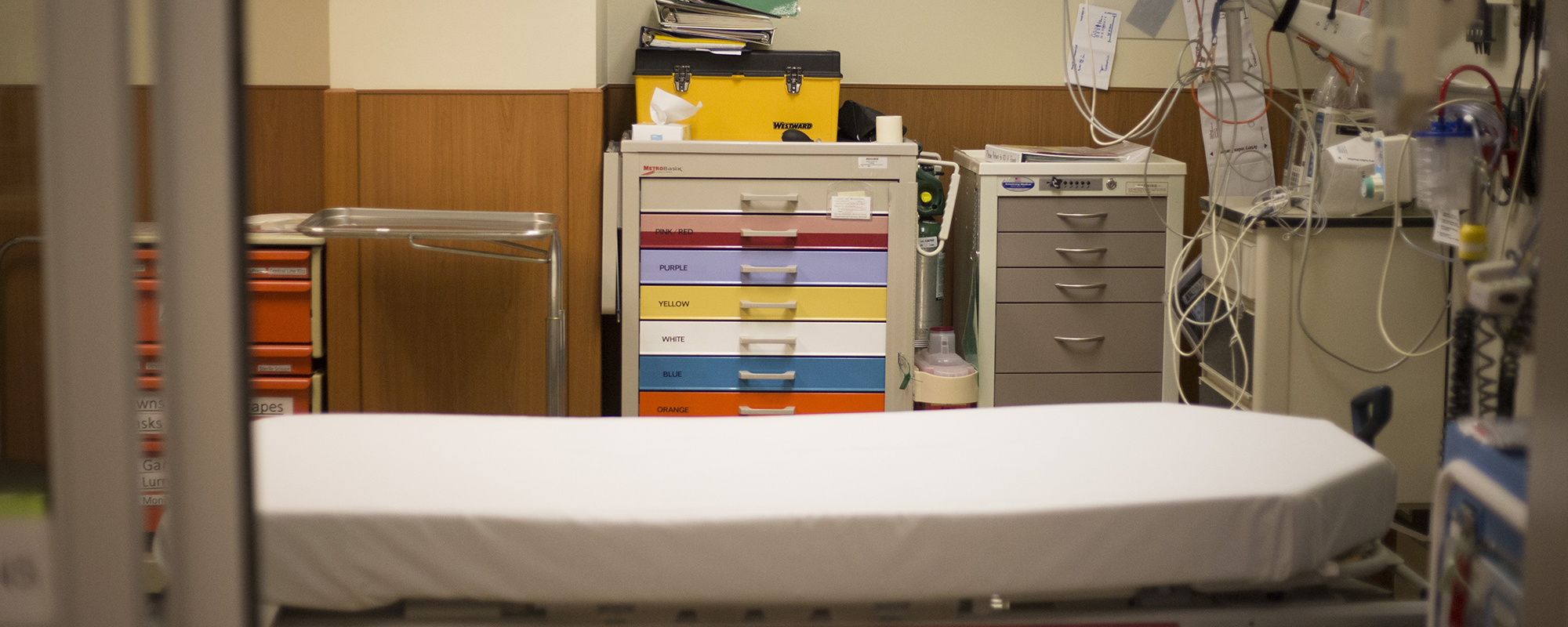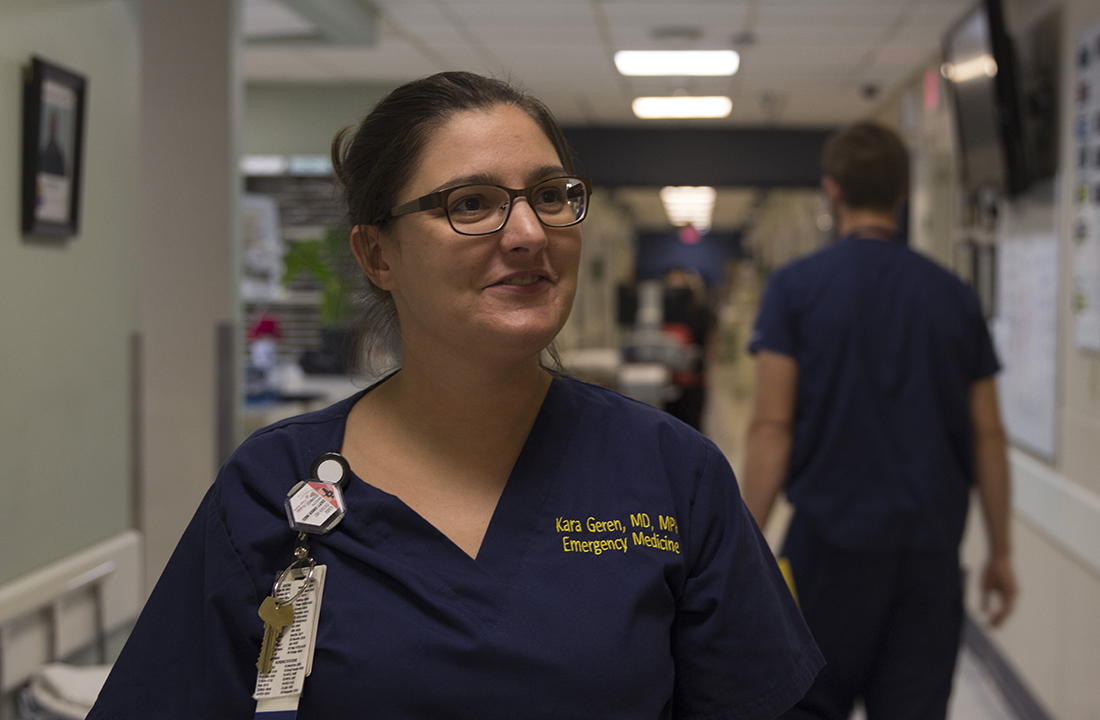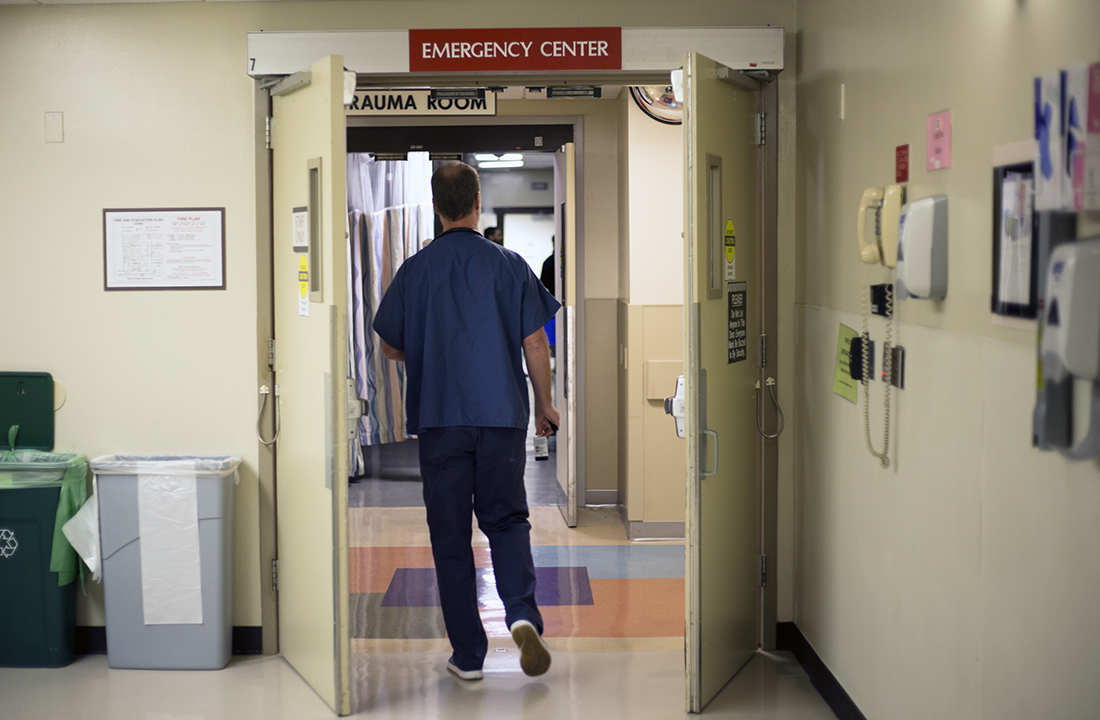An overdose happens when breathing stops and addicts essentially suffocate themselves, he said.
“We use something called a bag-valve mask – and that’s a mask with a balloon that we (use to) push air into their lungs – versus a tube that we put down into their lungs and their trachea to help them breathe and put them on a ventilator,” he said. “That would be the ultimate way to save someone’s life. And, of course, there’s the naloxone, the opiate-reversing agent that we would use to give to patients in that situation.”
Eric Downing has lived in Phoenix since he was 5 years old. Although he said he’s been sober since August 2014, his addiction has included multiple overdoses.
“There was one time in particular where I took a lot of of muscle relaxers and quite a bit of morphine,” Downing said. “And I wound up calling one of my friends, and he was like, ‘Hey let’s go to the lake.’ So we went to the lake, and on the way there, all of the pills started kicking in at once.”
As the drugs overpowered him, Downing would move in and out of consciousness.
“I remember blacking out and coming back to, and she’s pulling my arm … then I remember just passing out, I finally come back to and there’s an ambulance,” he said. “They load me into the ambulance, they pump me full of Narcan, and they take me to the hospital. And while I’m there, I black out again, and I come back to and the nurse says, ‘Do you remember not breathing for four minutes?’”
Downing said he adopted a longing for death. All he had to live for were the highs he chased.
“I remember just crying uncontrollably,” he said. “And again, up until this point, I thought that I wanted to die. I thought that I was so miserable, that there was no way out, that I wanted to die. But at that moment, when she told me that I almost did, and by my reaction of me crying, I knew that I wanted to live, and that scared the heck out of me.”
Related Story

The science behind opioid addiction
Because the effects and pain of withdrawals, something addicts call “dope sick,” are so powerful, most choose to medicate with more drugs.
“The withdrawal is probably why you have a lot of people in this epidemic, because they don’t want to go through that uncomfortable withdrawal,” Quan said. “So you have to seek out other forms of opiates, whether it’s methadone, oxycodone, Percocet, to heroin to help the symptoms. So you don’t withdraw.”
That, experts say, is why the rampant prescribing and use of opiates is so difficult to stop.
“It used to be that when a patient came in with an altered mental status, it’s something that we would consider on the differential diagnosis as something that maybe is causing the patient’s condition,” Geren said. “But now, it seems like it’s much more likely (it’s an overdose) and it’s something that we definitely have to consider and, oftentimes, treat.”
To properly address the epidemic, prescribers need to critically reevaluate the way they assign medications, Geren said. Without that, no real progress can be made.
“Since this has become an issue, I can say that I personally have changed my prescribing habits and I know a lot of other providers have, as well,” she said. “It has to start from the ground up, but I think it’s not just physicians – I think it’s everyone. I think it’s just the way parents talk with children about alcohol, this is just one of the other drugs that people have to consider and one of the other things that the community has to think about how they’re going to attack.”
Quan said prescribers such as himself and Geren are now being monitored more closely by government regulators to make sure they are maintaining safe prescribing habits.
“As a prescriber, I’m under more scrutiny on how many opiates I write, how many benzos and the various medicines that I write,” he said. “We’re being watched very carefully. And those prescribers who are running pill mills, as they call them, are being watched very, very carefully and being prosecuted, as well.”
Kayla McBride’s addiction started with prescription pills until she turned to heroin. Last year, she was living in a Prescott sober living house, though she said she since has relapsed at least once. She has overdosed five times.
“I was really sick one time, and I couldn’t find anything. And I took a whole bottle of Ambien,” McBride said. “I guess I died for about two minutes. Don’t remember that either.”
McBride woke up in the hospital the next day and had a single thought:
“I need to get high.”


.jpg)


CONNECT WITH US
Connect with our reporters and editors through social media, or call or email an editor from our contacts page.
Sign up for daily headlines